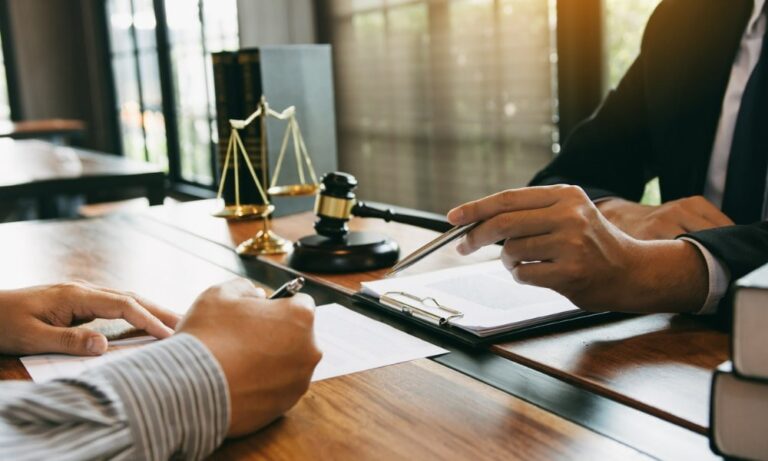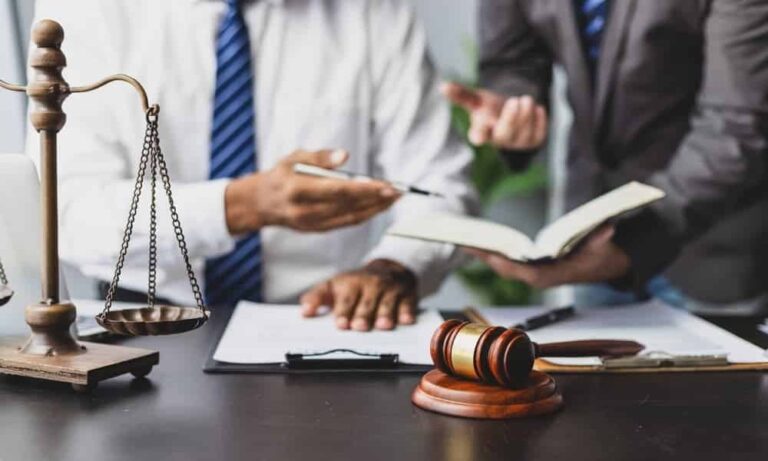
Motorcycle accidents often lead to devastating injuries, overwhelming expenses, and complex legal questions. If you have been injured in a motorcycle crash, it is essential to take swift and informed action to safeguard your legal rights.
Unlike car accidents, motorcycle crashes are more likely to result in severe injuries due to the lack of physical protection for riders. Understanding what steps to take after an accident can make a significant difference in your recovery, both physically and financially.
This guide outlines key actions that every injured motorcyclist should follow to ensure they are positioned for the best possible outcome in a personal injury claim.
Seek Immediate Medical Attention
The first and most important step after a motorcycle accident is to seek medical attention—even if your injuries seem minor. Motorcycle injuries often involve hidden complications, such as internal bleeding, traumatic brain injuries, or spinal trauma, which may not be apparent right away.
By obtaining a prompt medical evaluation, you not only prioritize your health but also create a medical record that serves as vital evidence for any future legal claims.
It is also important to follow through on all recommended treatments and keep detailed records of doctor visits, medications, surgeries, and rehabilitation. Consistent medical documentation helps establish the extent of your injuries and supports your case for fair compensation.
Report the Accident and Gather Evidence
Call the police immediately following a motorcycle accident and file an official report. This documentation is a critical piece of evidence that can corroborate your version of events. When the authorities arrive at the scene, be honest about what happened, but avoid admitting fault. Let the investigation and legal process determine liability.
If you are physically able, take photographs or videos of the accident scene, including road conditions, vehicle damage, traffic signs, and your injuries. Collect names and contact information from witnesses. These details may later support your account and help determine who was responsible for the crash.
Do Not Speak with Insurance Adjusters Without Legal Advice
Insurance companies are not on your side. Their primary goal is to minimize payouts and protect their bottom line. After an accident, an adjuster may contact you to ask for a recorded statement or offer a quick settlement. While this may seem convenient, it is usually in your best interest to avoid speaking with insurance representatives until you have consulted with an attorney.
A qualified attorney can communicate on your behalf, preventing you from making statements that could be misinterpreted or used against you later in the claims process. They can also evaluate any settlement offers to ensure that you are not accepting less than you deserve.
Understand the Full Scope of Your Damages
Many injured motorcyclists underestimate the long-term costs of an accident. Beyond immediate medical bills, you may face ongoing therapy, lost income, property damage, and emotional distress.
In some cases, injuries result in permanent disability, affecting your ability to earn a living or participate in activities you once enjoyed.
A thorough evaluation of damages should include:
-
Current and future medical expenses
-
Lost wages and reduced earning capacity
-
Pain and suffering
-
Emotional distress
-
Loss of enjoyment of life
-
Property damage
By working with legal and financial professionals, you can ensure that all losses are properly calculated and documented in your claim.
Work with a Personal Injury Attorney Who Understands Motorcycle Cases
Not all personal injury lawyers have experience handling motorcycle accident claims. These cases often involve unique challenges, such as public bias against motorcyclists, more severe injuries, and complex liability issues. Working with an attorney who understands these complexities can improve your chances of a successful outcome.
A knowledgeable attorney will investigate the accident, collect evidence, communicate with insurers, negotiate settlements, and, if necessary, take your case to court. Their goal is to protect your rights and secure compensation that reflects the full impact of your injuries.
Indiana’s Statute of Limitations for Motorcycle Accident Claims
It is important to act quickly after a motorcycle crash because Indiana law limits the time you have to file a personal injury claim. In most cases, you have two years from the date of the accident to take legal action. If you miss this deadline, you may lose your right to seek compensation entirely.
Additionally, gathering evidence and interviewing witnesses becomes more difficult as time passes. By speaking with an attorney soon after your accident, you improve your chances of building a strong case.
Why Legal Advocacy Matters
After a serious motorcycle accident, you are likely dealing with physical pain, emotional stress, and financial uncertainty. You should not have to navigate the legal process alone. An experienced attorney can alleviate the burden by managing your case and protecting your interests every step of the way.
At our firm, we are committed to helping injured motorcyclists pursue justice and rebuild their lives. We understand the tactics insurance companies use and how to counter them with solid evidence and legal strategy.
One of our trusted team members, Vaughn A Wamsley, has a proven track record of representing accident victims with dedication and skill. His experience handling complex injury claims makes him a valuable ally in any motorcycle accident case.
Understanding and Protecting Your Rights After an Accident
A motorcycle accident can turn your life upside down in an instant. However, by acting promptly and strategically, you can protect your rights and position yourself for meaningful recovery. From seeking medical care and documenting the accident to consulting with experienced motorcycle accident lawyers, each step plays a critical role in the success of your claim.
If you or a loved one has been injured while riding, do not wait to get the legal guidance you deserve. Your future health and financial stability may depend on it.




